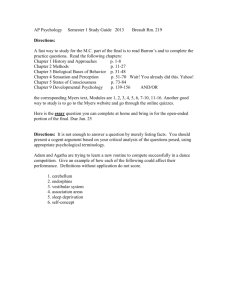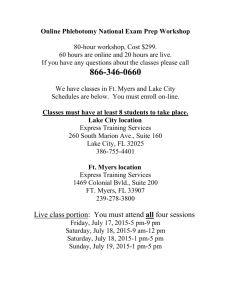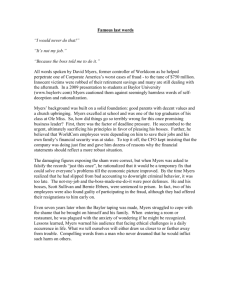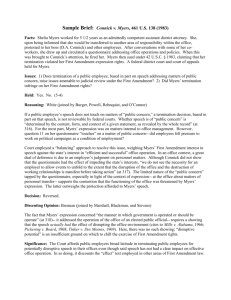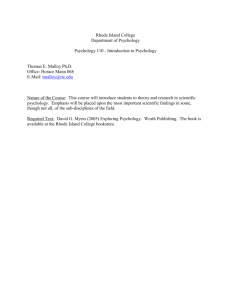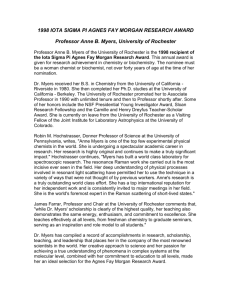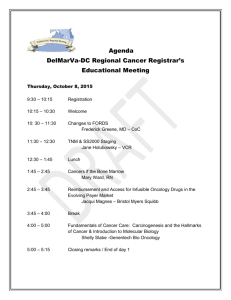Meg-Myers-Sorry-Bio-815
advertisement
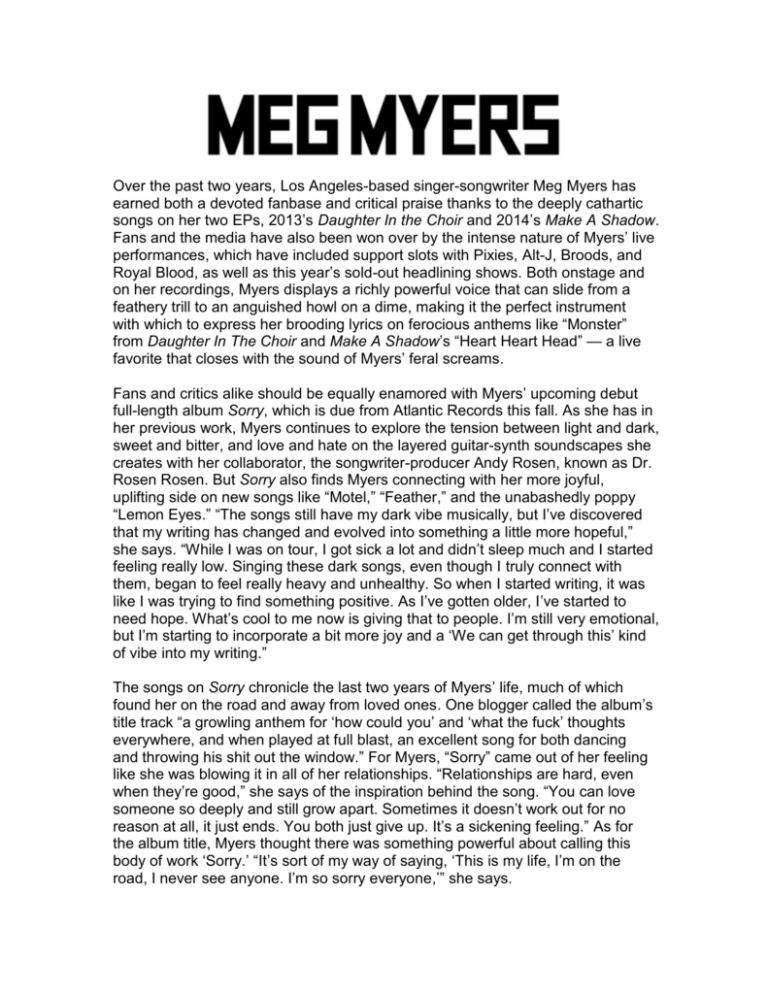
Over the past two years, Los Angeles-based singer-songwriter Meg Myers has earned both a devoted fanbase and critical praise thanks to the deeply cathartic songs on her two EPs, 2013’s Daughter In the Choir and 2014’s Make A Shadow. Fans and the media have also been won over by the intense nature of Myers’ live performances, which have included support slots with Pixies, Alt-J, Broods, and Royal Blood, as well as this year’s sold-out headlining shows. Both onstage and on her recordings, Myers displays a richly powerful voice that can slide from a feathery trill to an anguished howl on a dime, making it the perfect instrument with which to express her brooding lyrics on ferocious anthems like “Monster” from Daughter In The Choir and Make A Shadow’s “Heart Heart Head” — a live favorite that closes with the sound of Myers’ feral screams. Fans and critics alike should be equally enamored with Myers’ upcoming debut full-length album Sorry, which is due from Atlantic Records this fall. As she has in her previous work, Myers continues to explore the tension between light and dark, sweet and bitter, and love and hate on the layered guitar-synth soundscapes she creates with her collaborator, the songwriter-producer Andy Rosen, known as Dr. Rosen Rosen. But Sorry also finds Myers connecting with her more joyful, uplifting side on new songs like “Motel,” “Feather,” and the unabashedly poppy “Lemon Eyes.” “The songs still have my dark vibe musically, but I’ve discovered that my writing has changed and evolved into something a little more hopeful,” she says. “While I was on tour, I got sick a lot and didn’t sleep much and I started feeling really low. Singing these dark songs, even though I truly connect with them, began to feel really heavy and unhealthy. So when I started writing, it was like I was trying to find something positive. As I’ve gotten older, I’ve started to need hope. What’s cool to me now is giving that to people. I’m still very emotional, but I’m starting to incorporate a bit more joy and a ‘We can get through this’ kind of vibe into my writing.” The songs on Sorry chronicle the last two years of Myers’ life, much of which found her on the road and away from loved ones. One blogger called the album’s title track “a growling anthem for ‘how could you’ and ‘what the fuck’ thoughts everywhere, and when played at full blast, an excellent song for both dancing and throwing his shit out the window.” For Myers, “Sorry” came out of her feeling like she was blowing it in all of her relationships. “Relationships are hard, even when they’re good,” she says of the inspiration behind the song. “You can love someone so deeply and still grow apart. Sometimes it doesn’t work out for no reason at all, it just ends. You both just give up. It’s a sickening feeling.” As for the album title, Myers thought there was something powerful about calling this body of work ‘Sorry.’ “It’s sort of my way of saying, ‘This is my life, I’m on the road, I never see anyone. I’m so sorry everyone,’” she says. Other album tracks range from the deeply personal acoustic guitar-driven ballad “The Morning After” to the raging, unapologetic single “Desire,” to the raw nihilism of “I Really Want You To Hate Me,” which closes with Myers singing: “I wanna die.” “I would be so depressed after singing those lyrics over and over,” she says of recording the latter track. She wrote the more hopeful “Feather” as an antidote. “Maybe the feather’s a little fucked up. It’s been run over a few times, but it’s flying free, it’s in the air.” On the single “Lemon Eyes,” Myers delivers another upbeat and undeniably catchy track full of pop melodies and abrupt guitar riffs. Although Myers’ vocals sound sweet and almost lullaby-like, she built the song around the bitter concept of jealousy. “The song is about reassuring someone who is feeling the sourness of jealousy that they are yours, and you are theirs,” she says. Another album standout is “Motel,” which came to life one night while Myers was holed up in a crappy motel “with bugs on the floor, having gotten no sleep and feeling sick,” she says. “It’s about feeling really lonely and lost. But then it takes the struggle and all the pain and turns it around into joy.” The song features a spoken-word interlude from one of Myers’ idols, Townes Van Zandt, who can be heard saying: “From recognizing sadness, you can put it aside and be happy and enjoy the happy side of life.” Then a key change kicks in that launches “Motel” into a feeling of euphoria as Myers sings: “I wanna love, wanna live, wanna breathe, wanna give…” Music has always been an emotional release for Myers. Born in Nashville, she spent the first five years of her life in Tennessee’s Smoky Mountains where she was raised by a truck driver father and Jehovah's Witness mother. After her parents divorced, her mother married a fellow Witness, who moved the family to Ohio. Her mother and stepfather worked for a cleaning business. “They cleaned all night and slept during the day,” Myers says. When she was 12, Myers and her siblings were taken out of school when the family moved yet again, this time to Florida, where they bounced from town to town throughout her teen years. During this period, Myers began singing, writing songs on keyboard, and teaching herself to play guitar. She played bass in a band she started with her brother. “I had a huge need to express myself,” Myers says. “Music was always an escape from reality. I was forced to be an adult at a really young age. Music was the only safe place that was my own, where I could say whatever I wanted.” A few days shy of her 20th birthday, Myers made the decision to move to Los Angeles to pursue a career in music. She lived in a studio apartment and got a job waitressing and playing whenever she could get a gig. She eventually met her collaborator Rosen — a prominent remixer who’s worked on tracks by Britney Spears, M.I.A., La Roux, and Lady Gaga among others. “I came from this grunge, punk-rock background, but I always wanted to write catchy pop songs,” Myers says. “I grew up listening to well-crafted songs. I loved Sting, Led Zeppelin, Dire Straits, James Taylor, Jewel, and Fleetwood Mac. That’s what I was drawn to. I love the simplicity of a great song.” Myers has let her pop instincts temper the dark quality of her songs, creating a welcome balance on Sorry. “I love that I can show all these different sides of myself,” Myers says. “Through writing these songs, I’ve allowed myself to have joy in my life. When you come from a rough childhood, it can seem hard, but you can change your life if you change your perception. I want to help people do that.” ### Atlantic Records, 2015
